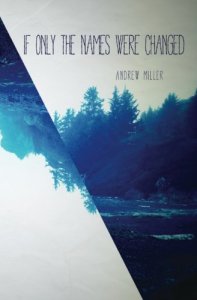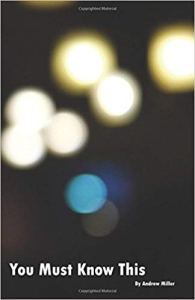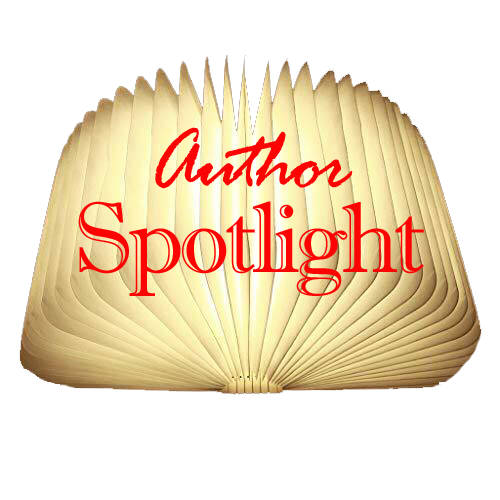The next writer to be featured in this series is Andrew Miller. I have been a fan of his for years, so to have him agree to answer my questions was a big deal to me. The fact that he took time out of his vacation in Mexico City to get these responses back to me just speaks to his dedication and commitment to the craft. (Although, I’m sure he wrote much more meaningful things aside from this while he was there!) He’s definitely the most academic writer I know, which I’ll let him talk about in a couple of minutes. Seeing his journey as a writer has been a huge inspiration for me, and he has been an enormous encouragement to me and my writing as well. He’s always been willing to help with my projects, and I’ve even been able to give some input for one of his too. Also, in the interest of full disclosure, I guess I should probably mention that he’s my cousin! Let’s get started with a brief bio before we jump into the questions.

How particular are you with spelling, grammar, etc? Do things have to be perfect from the beginning, or are you more worried about getting the idea on paper, then leave the proofreading to the editing?
How often do you write, and how long is a typical writing session?
I only ever set a specific goal when I am either on a deadline or I am editing. In those cases the deadline dictates the goal (this is sometimes essential to completion for me) or, if I’m editing, I like to set aside enough time so that I can go through an entire essay, or chapter, etc. Something realistic but long enough that there is a logical beginning and end to it. This gets back to the concept of voice that I mentioned earlier.
Since I haven’t written much fiction I don’t have a specific plot line I’m working from. That said, within the realm of my creative non-fiction I do set a frame around an event. With that border drawn I look to explore everything I can within it, and attempt to structure that exploration in a way which delivers suspense and then resolution (of a sorts) for my reader – much like in fiction writing. When speaking about structure I want to be clear that, for me, this happens more through the editing process than during the first stages of writing.
What do you think is the hardest thing about writing?
Clearing my mind of all life’s distractions to sit and do the work.
What is the easiest part of writing for you?
There’s an easy part?! (Editor’s note: Nope!)
What are your thoughts on “writers block?” Do you think it’s a real thing? If so, how long does it usually last and what methods do you use to get past it?
Writer’s block is an accurate way of describing the feeling associated with a lack of motivation. You could just call it a lack of motivation. For me I find having a deadline helps. Not a self-imposed deadline, there’s not enough shame in ignoring that. A deadline imposed by an outside party, particularly one that offers some sort of prompt. With both of those items in hand I can write.
What do you like to read (genre, titles) and who are your favorite authors?
If you took the chance to rewrite one of your books, which one would it be and why?
I wish that my first book had been given a stricter edit than it was. I cringe when I see some of the grammar errors that I wish I (or the editor) had caught. As much as I believe it is the author’s responsibility to write clearly and accurately, there comes a point where the author must give up control to an outside party. Obviously it is imperative that the editor has an interest in the work, and is invested in making it the best they are able.
Any advice you’d like to give your younger self? Any advice you’d like to give to aspiring authors?
My younger self should’ve taken up writing earlier, and not been so self-destructive. For the aspiring authors I offer something a bit more positive – you can do this! Don’t sit down to write a novel, an essay, or even a short poem. Sit down (or hell, stand on your head for all I care) and write a sentence that feels good to you. Once you’ve done that, write another. If they work together, great! If not, perhaps you’ve now got the beginning of multiple pieces.
Do you read any of your own work? If so, are you a harsh critic, or do you get wrapped up in the story?
If by this you mean do I like my work I would have to say mostly so. You can’t be a writer who wants to be read by others and not have some amount of ego and confidence. Saying that, you also need humility for the sake of editing or else you’ll be nothing but bluster.
Have you ever incorporated something that happened to you in real life into any of your stories? 
Always and in every story whether it is fictional or not. Write what you know, and then research what you don’t so that you can write beyond yourself.
What are you currently working on/What’s your next project?
I’ve got a new collection of essays I’m working on, several of which have already been published individually. The broad theme is around survival within the current (social and economic) culture of the United States. I’m drawn to trying to understand an environment which so willingly leaves so many people destitute, particularly those individuals trapped in the carceral state or living on the streets.
How many ideas do you have stories for at the moment?
Too many. Just got another one. Oops, there it goes into the wind.
Who are your books mostly dedicated to?
The loved ones in my life who put up with me disappearing into my keyboard.
Do you have a day job other than being a writer? If so, what is it and which do you prefer?
Yes, I work for the State of Ohio, writing contracts for technology purchases and overseeing those purchasing processes. Being in the union I am able to work a (no longer normal) 8-hour shift and leave my work at work. Everyone should be in a union so they don’t have to be pushed around by their bosses and stuck slaving away 10-12-14 hours a day. Be it as it may, I would much prefer creative writing full time over working for a wage. For this life, at least as of now, I’m privileged to have the opportunity to earn a good living and still have the mental and emotional wherewithal to write creatively on my own time.
Is it true that anyone can be a writer?
Absolutely, but does anyone want to be?
Which of your books would you most like to see adapted into a motion picture?
Nothing I’ve written so far – but someday I may write something suitable for the big screen.
Are you involved in marketing your books? If so, what are your favorite tips/tricks?
No matter who you are or what stage you are in as an author, you will be expected to help market your books. I have no favorite tips or tricks because I hate everything about marketing my work.
Have you ever worked with other writers on any of your projects?
Yes, in fact I believe your first stop before sending your work out for possible publication should be to send it to one or more trusted writer friends. Try your best to get feedback from not just another writer, but a writer who understands your genre and voice so they can give you solid feedback. Anyone who just tells you your story is great and doesn’t, at the very least, copy edit it for you is not doing you any good. Make sure you are always willing to return the favor, editing isn’t just good for them, it will make you a better writer as well.
What do you like to do in your free time?
Answer questionnaires – ha! – no, actually my favorite thing to do is travel. As such, I’m writing you from a comfortable table outside a cafe in Mexico City. As previously mentioned, I also skateboard (poorly), hang out with my family, and make art.
How did you celebrate the publishing of your first book?
I’m very bad about celebrating anything to do with myself. I think we might have gotten a pizza or something.
What kind of mementos do you have in honor of your published works?
I have a few tattoos as well as a couple of voided checks from my first royalties.
Have you ever abandoned a manuscript for any reason and not proceeded with publishing?
Far more often than I’ve completed one.
Have you received any awards for any of your literary works?
I have had the good fortune of winning some small writing awards, nothing anyone has really heard of, still I’m thankful for the recognition and small financial token they bring.
Do you need silence to write, or do you prefer some background noise? If you need noise, what is your preference?
I need to know I won’t be interrupted but I don’t require silence. In fact, I generally like some level of background noise. I can’t listen to music with lyrics, or to say a podcast, but I can and sometimes do listen to all sorts of music without words such as classical, jazz, electronic, or art rock.
Where did you do your first book signing?
The Book Loft in Columbus, Ohio. Be certain to check them out if you’re ever in town. Similarly, check out Two Dollar Radio HQ if you’re here, Gramercy Books in Bexley, Ohio; and, all of the other independent bookstores in town. We’re pretty lucky to have several.
Did you ever consider writing under a pseudonym? Why or why not?
Yes, as a way of separating voices when writing for very different audiences.
 Is your goal to offer a unique writing style, or to provide a more conventional story that readers are more geared towards?
Is your goal to offer a unique writing style, or to provide a more conventional story that readers are more geared towards?
My desire is to take full advantage of the situation I’m in, which is to say that I do not have to feed my family by writing creatively, so I write what I want to write. This is not to say I am only looking to write “uniquely”, only that I understand my audience may be more limited based on my content and voice and I am OK with that. I will never have the success of a J.K. Rowling with what I write, but I am not seeking that either.
What is the best purchase you’ve made as a writer?
Plane tickets to a foreign country. Also my bachelors and masters degrees.
Who’s your favorite author that nobody knows about?
A few writers making name for themselves in the now who I have great respect for include Hanif Abdurraqib, Sarah Gerard, and Masande Ntshanga. I think the person that I want everyone to read though is Scott Navicky – he is by far the smartest and funniest writer I know. Additionally, two writers I went through my MFA program with who will have first books coming out in the next year or two are Michael Schmidt and Mike Zimmerman. Be on the lookout!
Have you ever Googled yourself? What was your reaction to the results?
That there is a shit-ton of Andrew Miller’s in this world. (Editor’s Note: Confirmed.)
How can fans reach/find/follow/contact etc?
Instagram @digitalocracy or via my website Andrew-Miller.com
Anything else you would like to share?
First of all, thanks so much for spending this time allowing me to talk writing with you – it’s been an honor. Then, finally, just a heads up that If Only The Names Were Changed, winner of a Beachie Award, will be going out-of-print in June of this year, so get your copy today!
I feel like I should mention again that Andrew completed all of these questions while vacationing in Mexico City. His responsiveness has always been incredible and very much appreciated! Now I’m actually going to encourage you to stop reading this and go check out his work!


Pingback: Interviewed by CKFiction | Andrew Miller
Pingback: Exploring the Writing Community: Circle City Publishing | CK Fiction
Pingback: 2019 In Review | Andrew Miller